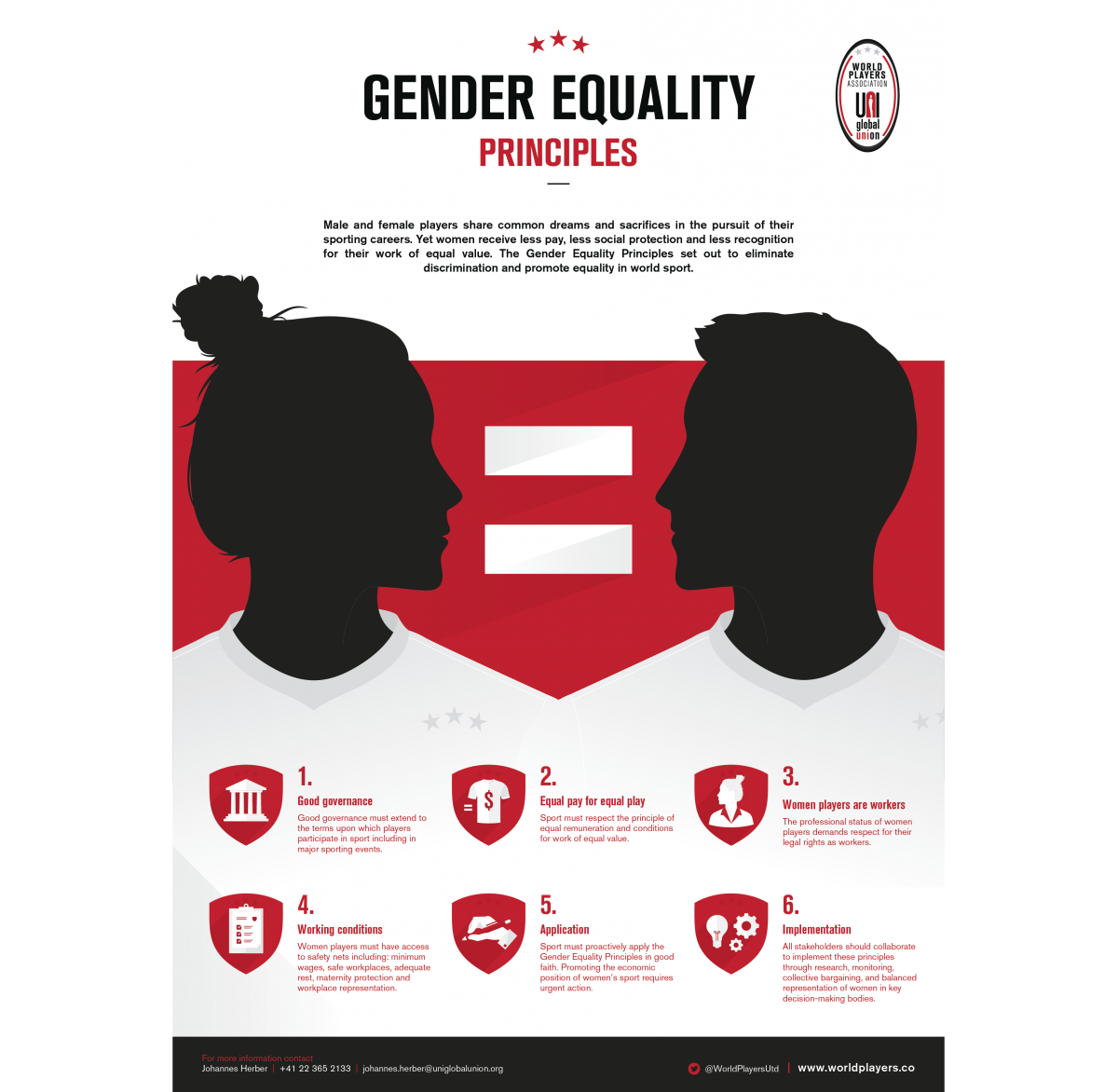Women players from across the world battle for equality of opportunity and pay

In 2017 more professional sportswomen than ever have united to fight for the right to compete, better pay and improved working conditions. The new Gender Equality Principles of the World Players Association lead the way.
Look no further than the announcement from the Danish footballers last week. After several months of negotiations including two boycotted games the women’s national team reached a new deal with their federation this month. The agreement involves increased monthly allowances and match bonuses, better insurance coverage and new investments in apparel and training facilities.
Add to this the Australian cricketers who this summer negotiated a gender equity pay model in their new Memorandum of Understanding with Cricket Australia. This resulted in the biggest pay rise in the history of Australian women’s sport.
Consider also the US women’s hockey team threatening a boycott of the World Championships to finally achieve an improved wage agreement. The players can now earn a livable wage, receive increased insurance provisions and maternity support.
The list continues.
Women players in Argentina, Brazil, Ireland, Scotland, Norway, Sweden, and New Zealand have successfully bargained for better terms and working conditions this year or have gotten organised to do so. Their actions build on the momentum created by a historic class action filed by a coalition of international footballers before the Women’s World Cup in 2015. The 100 strong player group argued that having to play on artificial turf instead of the natural grass guaranteed their male counterparts constituted gender discrimination.
“It’s fantastic to see women players worldwide unite and fight for fairer pay and improved working conditions. The outcome will not only enhance their lives but it will create genuine career paths for the next generation of talents,” said Kathryn Gill, a former Australian international footballer and now a player advocate and organiser at Professional Footballers Australia (PFA). Shortly after retiring as a player, Gill and the PFA led a successful strike by the Matildas, Australia’s national team, which resulted in a significant pay increase and improved conditions for her team under a new collective bargaining agreement.
To Gill, the players’ fight for gender equality extends beyond the sporting field. “Organised female athletes send a strong signal to other women in society. They have a platform to advocate for social change and I encourage them to use it.”
Gender discrimination is also evident in other forms.
The US basketball player Bilqis Abdul-Qaadir has already lost three years of her playing career due to a rule that prevented her from wearing the hijab on the court. Following Bilqis’ concerted campaign assisted by activists groups, the World Players Association and its basketball affiliates, FIBA, basketball’s world governing body, overturned the rule in October.
“The rule forced me to choose between my identity as a Muslim woman and the game I love. By changing its headgear rule and now allowing women to play in a hijab FIBA has created the opportunity for Muslim players to compete without having to make this difficult choice”, said Bilqis.
Kristen Worley, an XY female, had her elite cycling career cut short due to the binding gender verification policies of the IOC which were both invasive and lacking in scientific merit. Her legal challenge through the human rights jurisdiction of Canada involved the Ontario Cycling Association, Cycling Canada, the UCI, WADA and the IOC. In order to seek relief outside of sport, she refused to sign a cycling licence and, in so doing, lost the right to participate in her sport.
“Even though my journey came through the experience of gender, the growing diversity of sport requires it to understand that athletes are people. Sport, therefore, has a duty to protect their fundamental human rights.”
Amidst these developments the World Players Association has further strengthened its commitment to all women players and the players associations that work on their behalf.
“Sport cannot afford to have women players denied the opportunity to realise their sporting and human potential because of the unsustainable nature of their careers. Granting women the status and pay they deserve will help grow women’s sport at all levels”
“Labour and economic rights therefore matter, starting with decent pay and decent work. It is without question that the fundamental principle of equal remuneration and conditions for work of equal value must apply,” said Brendan Schwab, Executive Director of the World Players Association.
The World Players Association is guided by a set of principles that aim to eradicate gender based discrimination and promote gender equality in sport. Aside from equal pay, employment status and increased protections the “Gender Equality Principles” call on sporting bodies to work in partnership with players associations to develop a clear strategic vision for women’s sport including its economic development.


